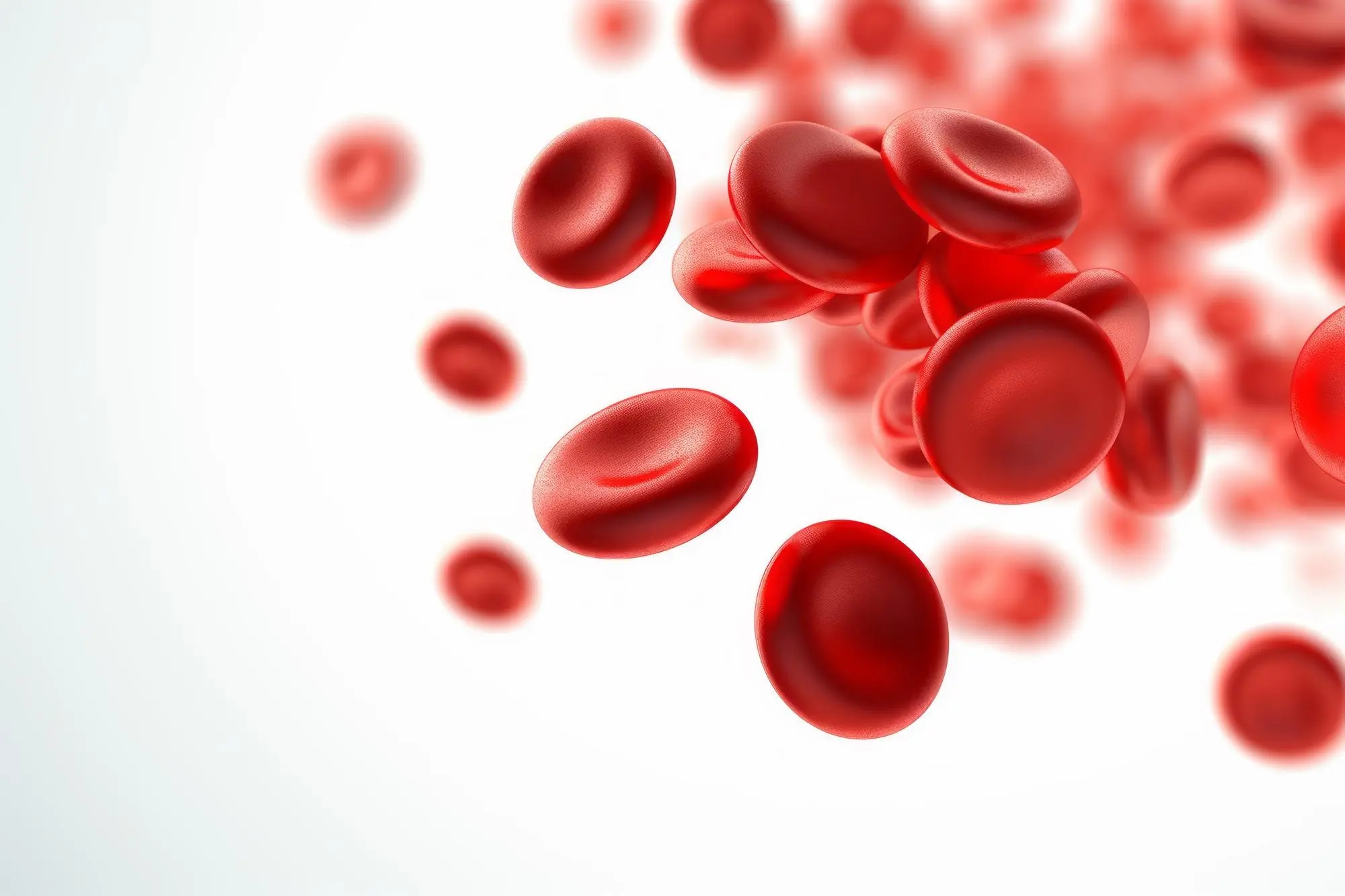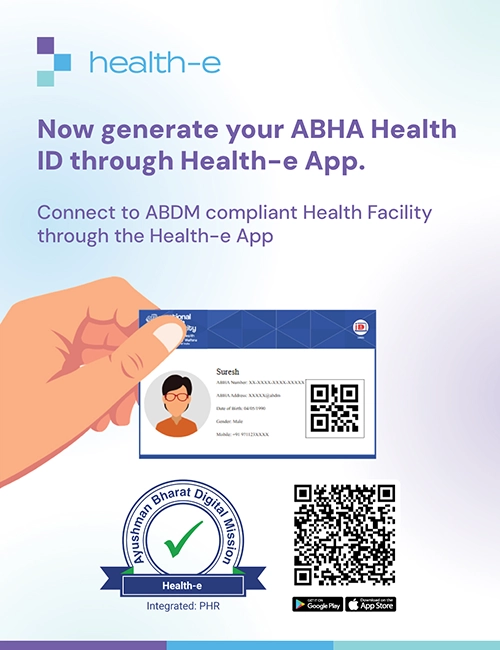According to NFHS-5 (2019-21), a shocking 57% of women aged 15-49 and 67% of children aged 6 months to 59 months are anaemic.
The anaemia(problem of not having enough healthy red blood cells or haemoglobin to carry oxygen to the body’s tissues) in India has grown substantially, with recent studies finding worrying figures.
This article looks at the relevance of haemoglobin and how it affects your general health. Whether you want to increase your iron consumption or try some new lifestyle modifications, this article has got you covered.
Prepare to dig into the top ten strategies for increasing haemoglobin and improving your overall health!
What is the Role of Haemoglobin in the Body?
What are the Normal Haemoglobin Levels?
For adult men, the average haemoglobin range typically falls between 13.8 to 17.2 grams per decilitre (g/dL). Women usually have slightly lower ranges, with the normal haemoglobin level ranging from 12.1 to 15.1 g/dL.
It’s essential to be aware of these ranges to monitor your haemoglobin levels and take steps to maintain them within the healthy range.
What Are the Possible Consequences of Low Haemoglobin Levels?
Low haemoglobin levels can cause a variety of health issues, including:-
- Exhaustion
- Weakness
- Shortness of breath
- In extreme cases, heart failure
- Reduction in oxygen-carrying capacity in the blood, which strains vital organs
What are the Typical Symptoms of Low Haemoglobin Levels?
Recognising the symptoms of low haemoglobin levels is crucial for early intervention to increase haemoglobin levels. Common signs include:-
- Persistent fatigue
- Dizziness
- Pale skin
- Shortness of breath.
If you experience any of these symptoms, it’s essential to consult a healthcare professional for a thorough evaluation of your haemoglobin levels.
What are Some of the Common Causes of Low Haemoglobin Levels?
Several reasons can cause low haemoglobin levels, such as:-
- Dietary inadequacies
- Chronic illnesses
- Blood loss
- Bone marrow issues.
Understanding the underlying reasons allows you to make specific efforts to treat and reverse low haemoglobin levels.
How to Increase Haemoglobin Levels? Top 10 Methods
From dietary changes to lifestyle habits, let’s walk you through the top 10 strategies to give your haemoglobin a boost and enhance your well-being.
- Consume Iron-rich Foods: Incorporate iron-rich foods such as meat, poultry, fish, seafood, legumes, beans, and dark leafy greens into your diet. These foods are essential for boosting your body’s iron levels, which in turn can help boost your haemoglobin levels.
- Have Vitamin B12 and Folate Sources: Include dairy products, eggs, and fortified foods in your diet to up your intake of vitamin B12 and folate. These nutrients play a vital role in haemoglobin production and can contribute to increasing your haemoglobin levels.
- Eat meals that Increase Iron Absorption: To improve iron absorption in your body, combine iron-rich meals with vitamin C-rich fruits and vegetables. This combination can increase the advantages of iron-rich meals and promote healthy haemoglobin levels.
- Avoid Consuming Calcium-rich Foods While Eating Iron-rich Meals: Calcium can decrease iron absorption. Therefore, it’s best to avoid calcium-rich foods while having high-iron meals. This simple dietary change can assist in improving iron absorption and haemoglobin synthesis.
- Limit Your Intake of Coffee and Tea: Avoid tea or coffee, especially around mealtimes. Both of these beverages include chemicals that might inhibit iron absorption. Therefore, limiting their consumption can help maintain healthy haemoglobin levels.
- Avoid Gluten: If you are gluten-sensitive or suffer from celiac disease, avoiding gluten-containing foods can be beneficial for improving your overall nutrient absorption. Making dietary adjustments to avoid gluten can support efforts to increase haemoglobin levels.
- Regular Exercise and Physical Activity: Engaging in regular exercise and physical activity can help stimulate the production of red blood cells, which are essential for maintaining adequate haemoglobin levels.
- Stay Hydrated: Another effective way to increase haemoglobin naturally is to stay hydrated. Hydration is crucial for supporting the body’s blood volume and overall circulation.
- Get Those Zs: Quality sleep is essential for numerous bodily functions. Prioritising adequate and restful sleep can support the body’s natural processes involved in haemoglobin production.
- Take Supplements: If you have persistently low haemoglobin levels, consult healthcare professionals for supplementation options, including iron, vitamin B12, and folate supplements. These supplements can help address specific nutrient deficiencies contributing to low haemoglobin levels.
In conclusion, haemoglobin serves as a lifeline for your body, ensuring that every cell receives the oxygen it needs to thrive. With the prevalence of anaemia on the rise, it’s essential to be proactive in maintaining healthy haemoglobin levels.
By understanding the normal haemoglobin range, potential consequences of low levels, symptoms, and underlying causes, you can prioritise your health and well-being. Also, give these proven methods to increase haemoglobin levels a try and take charge of your health today.
Apart from the tips mentioned here, regular blood testing and seeking medical treatment for persistently low haemoglobin levels are critical measures for maintaining normal haemoglobin levels. You can also consider utilising PHR applications to help with this process.
Take the next step towards better health by frequently monitoring your haemoglobin levels with the Health-e app. Its user-friendly design and extensive features allow you to take charge of your health and well-being.
Frequently Asked Questions (FAQs):
1. What Transpires if Haemoglobin Levels Are Too Low?
2. How to Increase Haemoglobin in a Week?
To increase haemoglobin levels in a week, you can try the following:
- Eat iron-rich foods like spinach, lentils, beans, tofu, soaked raisins and fortified cereals.
- Consume vitamin C-rich foods like citrus fruits, berries, kiwi, tomatoes, and bell peppers.
- Avoid drinking tea and coffee with meals.
- Take iron supplements after consulting with a doctor.
- Exercise regularly to improve blood circulation.
Remember to consult a doctor if you have a severe deficiency.
3. What Vegetarian Meals are Most Beneficial for Boosting Haemoglobin Levels?
4. Which Beverage Boosts Haemoglobin?
5. What is the Finest Fruit for Haemoglobin?
Pomegranate is considered one of the best fruit for increasing haemoglobin levels. It is packed with iron and other essential nutrients that help boost the body’s red blood cell production.
Additionally, fruits like pomegranates, apples, and apricots are great options. These fruits are rich in iron, which is essential for haemoglobin production in the body. Additionally, including citrus fruits like oranges and grapefruits in your diet can help with iron absorption.





